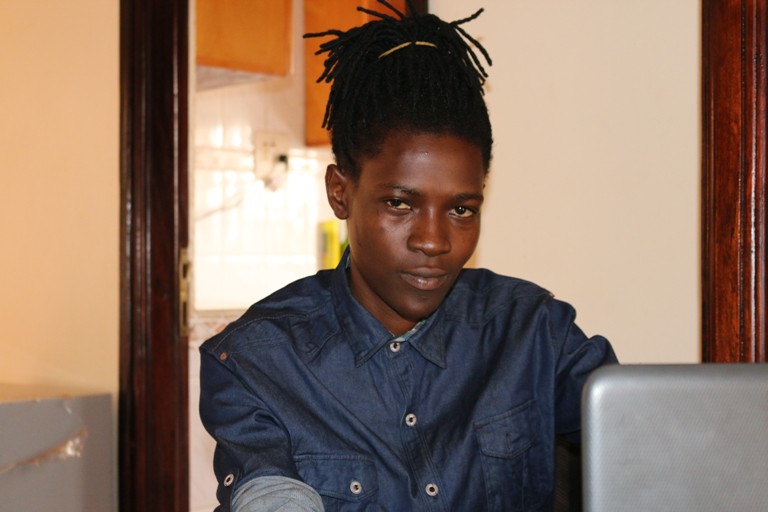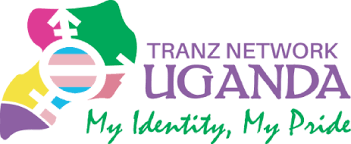USAID cuts push Uganda’s trans community to the brink
Joto La Jiwe is a Ugandan correspondent for the African…
Elimination of U.S. support under President Trump has left trans people scrambling for resources

The withdrawal of critical foreign aid funding coupled with heightened legal and social hostility in Uganda, has pushed the trans and gender diverse community to the brink, according to a new report published by Tranz Network Uganda.
The report titled “Targeted and Abandoned, Uganda’s Trans and Gender Diverse Persons Community in the Crosshairs of Policy Shifts” documents the devastating impacts of these intersecting policies and calls for an immediate international response.
These policies, framed as efforts to protect traditional and family values in Trump’s America and Museveni’s Uganda have had far-reaching implications globally, particularly in countries that rely heavily on US foreign aid for healthcare and social services.
In Uganda, where LGBTQ+ persons already face systematic persecution under the draconian Anti-Homosexuality Act (AHA), the ripple effects of these US policy shifts are devastating. Trans and gender diverse persons Ugandans, who are among the most marginalized groups in the country, are now experiencing heightened vulnerabilities as critical funding for HIV prevention, healthcare, and social support programs is frozen or withdrawn.
This convergence of US and Ugandan policies has created what the report describes as a perfect storm of stigma and violence against an already at-risk population, widespread service disruptions and an erosion of fundamental human rights.

William Apako, Founder and Executive Director of Tranz Network Uganda, says this is not a usual report.
“This report is a call to action not just for policymakers and donors, but for all of us who believe in justice, equality, and human dignity and the broader gender equality movement,” he says.
The Trump administration Executive Orders issued in early 2025 have halted or restricted funding for programs serving transgender and gender diverse communities, including HIV prevention, mental health support, and shelter services.
According to the report, 88.9% of surveyed NGOs and clinics reported that their organizations had been “directly affected” by the funding freeze, confirming widespread service disruptions while 77.8% have already reduced or suspended staff or programs due to budget constraints, leaving thousands without access to life-saving care.
Below are some excepts from the report’s findings.
A Collapse of Safe Spaces
Community centers, once vibrant hubs of support and solidarity, have been forced to shut down or drastically scale back their operations. These spaces provided more than just healthcare; they were sanctuaries where trans and gender diverse persons could find acceptance, counseling, and a sense of belonging.
Without these safe spaces, many trans and gender diverse persons Ugandans are left isolated and vulnerable, cut off from the social networks that once sustained them. The psychological toll is immense, with reports of rising anxiety, depression, and suicidal ideation among community members.

Healthcare in Crisis
The interruption of HIV testing campaigns and treatment programs has had dire consequences for trans and gender diverse persons Ugandans, who already face disproportionately high rates of HIV. Local advocacy groups report that testing initiatives once reaching hundreds of trans and gender diverse persons each month have been paused indefinitely due to funding uncertainties.
Shelter and Safety Under Threat
Shelter programs that once provided emergency housing to trans and gender diverse persons escaping violence or homelessness are now overwhelmed and underfunded. Many of these programs have been forced to turn people away, leaving trans and gender diverse persons with nowhere to go.
Trans men and women run away from home because their families beat them for being trans.
The fear of official crackdowns on “promoting trans and gender diverse personsism” has further compounded the crisis. Many trans and gender diverse Ugandans are reluctant to seek help at government facilities, fearing arrest or harassment. This has created a chilling effect, pushing vulnerable persons further into the margins.
Mental Health and Emotional Toll
The loss of mental health services has been particularly devastating. Community-based clinics that once offered counseling and support groups are now shuttered or operating at reduced capacity. For many trans and gender diverse persons Ugandans, these services were a lifeline, providing a space to process trauma, build resilience, and find hope.
Economic Survival at Risk
The funding freeze has also disrupted economic empowerment programs that helped trans and gender diverse persons secure livelihoods. Many trans and gender diverse Ugandans, already excluded from formal employment due to discrimination, relied on these programs for vocational training, microloans, and job placement services. Without access to stable income, many trans and gender diverse persons are forced into precarious or dangerous situations, including sex work, where they face heightened risks of violence and exploitation.
Staffing & Operational Challenges
The funding freeze has forced many organizations to lay off clinical and administrative staff, including specialized counselors trained to address the unique needs of trans and gender diverse persons. These layoffs have not only reduced the capacity of service providers but have also eroded the trust and rapport that trans and gender diverse persons clients had built with their caregivers.
Facility Closures
Rural drop-in centers, which historically operated on lean budgets, have been the first to shut down. This has placed additional pressure on urban centers, which are now overburdened and struggling to meet the increased demand. For trans and gender diverse persons living outside major cities, the closure of rural facilities means longer travel distances, higher costs, and greater risks of stigma and violence.
A Community Fighting to Survive
Despite the overwhelming challenges, trans and gender diverse persons Ugandans are demonstrating remarkable resilience. Peer-led initiatives, though underfunded and under-resourced, are keeping hope alive. Online platforms have become vital spaces for connection, with trans and gender diverse persons sharing advice, organizing fundraisers, and offering emotional support to one another.
These efforts however are not enough to fill the void left by the collapse of donor-funded programs. It is a dire situation that calls for the restoration of funding, stronger protections, and a renewed commitment to the rights and dignity of trans and gender diverse persons Ugandans.




